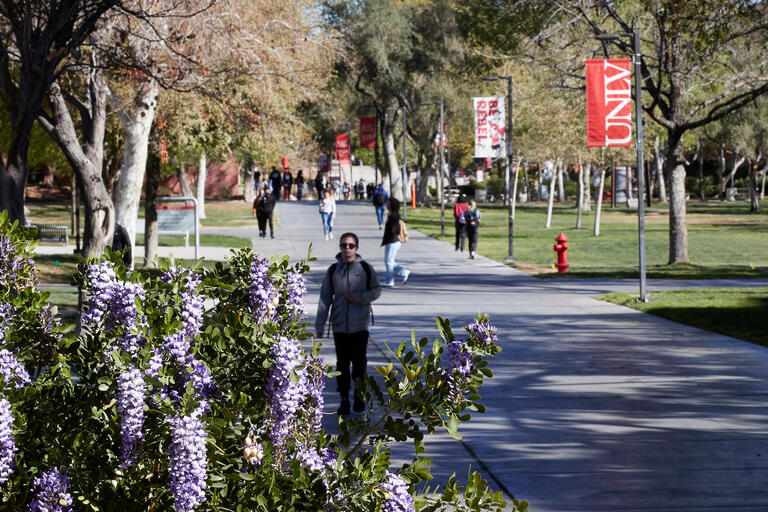After more than a decade building legal aid programs for refugees in the Middle East, Michael Kagan is channeling what he learned abroad into the American immigration system.
The Boyd School of Law professor developed an interest in immigration and refugee law as a law student. In 1998, he took a semester off to work for an Egyptian human rights organization.
"An Algerian refugee came in and said he needed protection and wanted to go to the U.S. or Canada," Kagan said, adding that he was reluctant at first. "I thought it would be really tedious and technical, but there was no one else so I took the case. I learned how difficult it is and how rewarding it is to see people at this turning point in their lives, when they could either be sent to the lions' den or rebuild."
His most difficult experiences have been hearing stories from torture victims. A veterinarian from South Sudan, in particular, has stuck with him.
"This man had been beaten, had all kinds of awful things done to his body. He could talk about these things with no problem, but when his torturers found out that he was a veterinarian, they made him get on his knees and make animal sounds," Kagan said. "When he talked about that, that's when he started to cry, and that taught me a lesson about what really hurts."
Kagan, who has also worked in Lebanon, Israel, and the Palestinian Territories, has published multiple works about Middle Eastern refugee policy. He published several recent papers on the politics of refugee policy in the Arab world, including proposals to build stronger asylum systems after the Arab Spring.
"Refugee policy in the Middle East is close to my heart because I spent most of my career working there," he said. "No country in the Middle East has a genuinely working asylum system. So what I was trying to do is point the way toward a more functional refugee protection system that might be able to work within the politics of migration in countries like Egypt."
Kagan's first practical training in law from an Egyptian activist who had taken up law after being tortured as a political prisoner. "He told me that even though the law is never perfect, lawyers should always try to take it seriously," he said. "I think it was in Egypt where I really learned what it meant to be a lawyer."
That meant confronting the difficulty of separating genuine refugees from people who might be inventing their claims. His experience in Egypt produced one of the most widely cited studies of refugee credibility assessment, which was published in 2003 and has since been relied on by the 9th and 7th Circuit courts of appeal in precedent-setting decisions.
"Very few of the cases I saw in Cairo raised any controversial legal issues," Kagan said. "But they turned on credibility assessment, and there were no clear standards about what should be considered believable. Every decision-maker was different, and the decisions were basically arbitrary."
Kagan's interest in credibility assessment led him to focus on how American courts handle immigration appeals. He is now working with Boyd professor Fatma Marouf on a large-scale study of how the circuit courts decide whether to block a deportation while an appeal is pending, known as granting a stay of removal.
At UNLV, Kagan is teaching in the Immigration Clinic, Professional Responsibility, and Administrative Law. The clinic takes some asylum and torture cases, raising issues similar to those Kagan dealt with abroad.
"This is great for students because not only do they get experience and get to make real arguments, they get to see the complexity of how these rules apply to real people," Kagan said.



